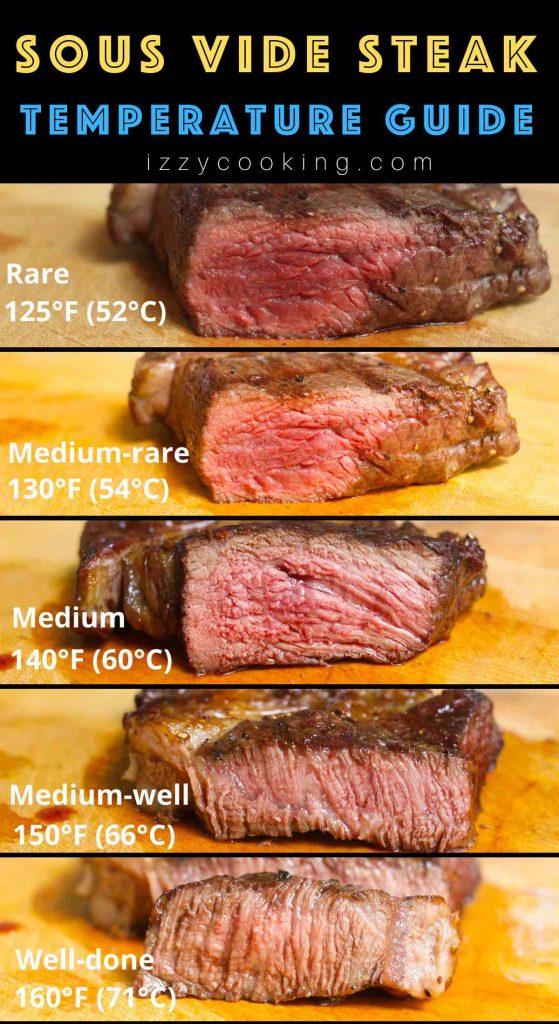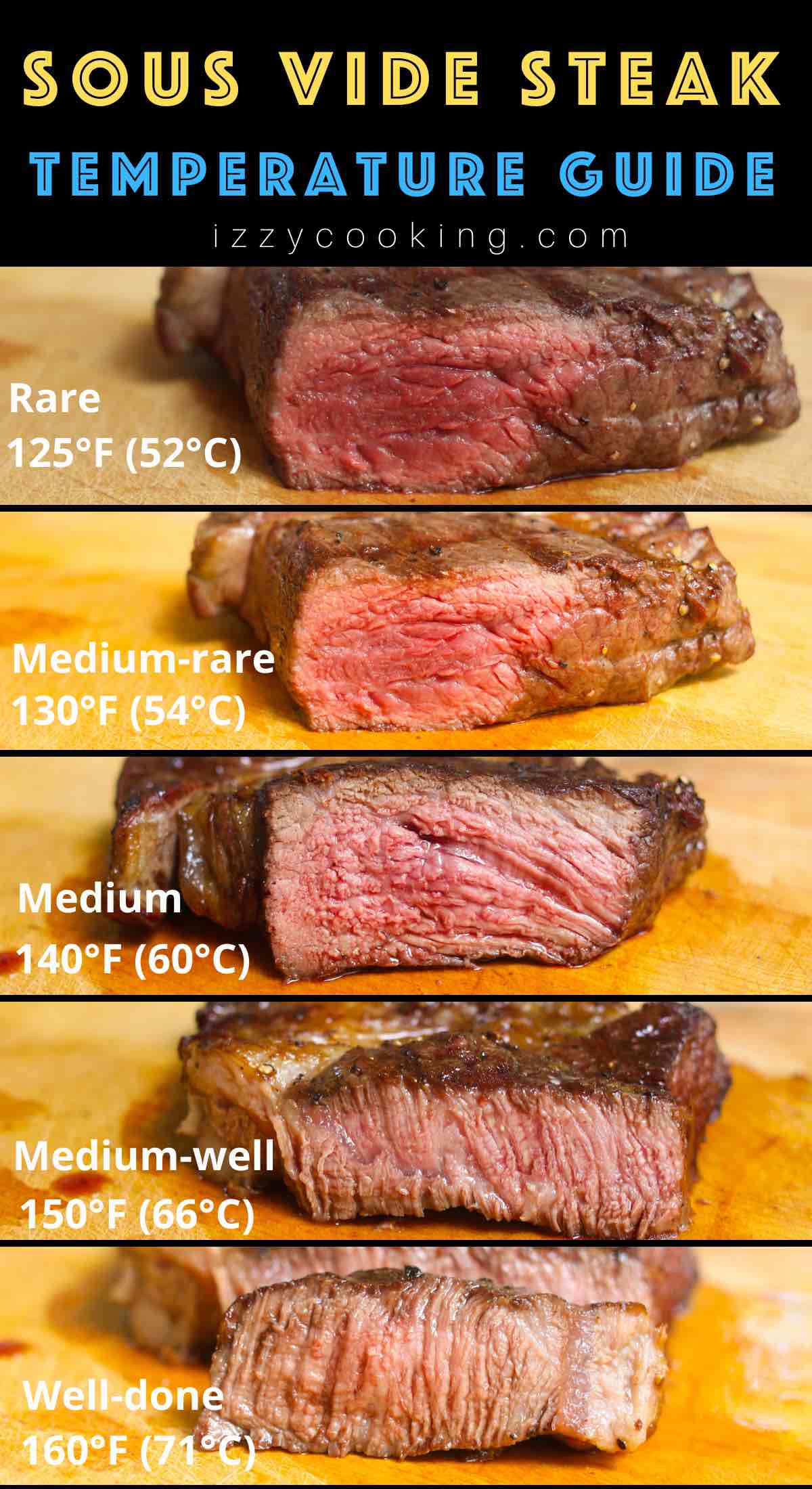Steak is a timeless favorite for meat lovers around the world, and mastering the art of cooking it to perfection is a skill worth developing. One of the most critical aspects of achieving the perfect steak is understanding what temp should a steak be for medium. This temperature plays a crucial role in delivering a tender, juicy, and flavorful steak that satisfies your palate. Whether you're a seasoned chef or a beginner in the kitchen, knowing the ideal medium steak temperature can elevate your culinary experience.
Cooking steak to medium doneness requires precision and understanding. A medium steak should have a warm pink center with a hint of red, providing a balance between tenderness and flavor. Achieving this requires a proper understanding of the internal temperature and cooking techniques, which we will explore in this article.
Our guide will walk you through everything you need to know about cooking a medium steak, from the ideal temperature to the best methods for achieving consistent results. By the end, you'll be equipped with the knowledge to confidently cook a medium steak that impresses even the most discerning palates.
Read also:Hugh Grant A Journey Through The Life And Career Of A Hollywood Icon
Table of Contents
- Understanding Medium Doneness
- What Temp Should a Steak Be for Medium?
- Cooking Methods for Medium Steak
- Why Resting Steak is Important
- Temperature Guides for Different Doneness
- Common Mistakes to Avoid
- Tips for Perfectly Cooking Steak
- Best Cuts of Steak for Medium Doneness
- Essential Equipment for Steak Cooking
- Conclusion
Understanding Medium Doneness
What Does Medium Doneness Mean?
Medium doneness refers to a steak that has been cooked to an internal temperature of approximately 135°F to 145°F (57°C to 63°C). At this temperature, the steak has a warm pink center with slight browning on the outside. The texture is tender, and the juices are flavorful, making it a popular choice among steak enthusiasts.
Why Medium Doneness is Popular
Medium doneness strikes a perfect balance between flavor and tenderness. It retains enough moisture to keep the steak juicy while allowing the Maillard reaction to develop rich flavors on the surface. This doneness level is favored by many because it offers a compromise between the rare and well-done extremes, catering to a wide range of tastes.
What Temp Should a Steak Be for Medium?
The ideal internal temperature for a medium steak is around 135°F to 145°F (57°C to 63°C). Achieving this temperature ensures that the steak is cooked evenly, with a pink center and a slightly firm texture. Using a meat thermometer is the most reliable method to check the internal temperature, as it provides accurate readings and helps avoid overcooking or undercooking.
Cooking Methods for Medium Steak
Pan-Seared Steak
Pan-searing is a popular method for cooking steak due to its ability to develop a flavorful crust. Start by heating a heavy skillet over high heat, then add a small amount of oil. Once the skillet is hot, place the steak in the pan and sear for a few minutes on each side. Finish cooking in the oven if necessary, until the internal temperature reaches the desired level.
Grilling Steak
Grilling is an excellent method for achieving a medium steak with a smoky flavor. Preheat your grill to high heat and place the steak on the grates. Cook for about 4-5 minutes on each side, depending on the thickness of the steak, until the internal temperature reaches 135°F to 145°F.
Why Resting Steak is Important
Resting steak is a crucial step that allows the juices to redistribute throughout the meat, ensuring a more tender and flavorful bite. After removing the steak from the heat source, let it rest for about 5-10 minutes before slicing. This resting period helps retain moisture, resulting in a juicier steak.
Read also:Sajdecom Your Ultimate Guide To Discovering The Best Deals And Services Online
Temperature Guides for Different Doneness
Internal Temperature Ranges
- Rare: 120°F to 130°F (49°C to 54°C)
- Medium-Rare: 130°F to 135°F (54°C to 57°C)
- Medium: 135°F to 145°F (57°C to 63°C)
- Medium-Well: 145°F to 155°F (63°C to 68°C)
- Well-Done: 155°F and above (68°C and above)
Common Mistakes to Avoid
Overcooking the Steak
One of the most common mistakes is overcooking the steak, which can result in a dry and tough texture. To avoid this, always use a meat thermometer to monitor the internal temperature and remove the steak from the heat source slightly before reaching the desired temperature, as it will continue to cook while resting.
Not Letting the Steak Rest
Skipping the resting period can cause the juices to escape when slicing the steak, leading to a less flavorful and less tender result. Always allow the steak to rest for a few minutes after cooking to ensure optimal juiciness.
Tips for Perfectly Cooking Steak
Seasoning the Steak
Proper seasoning is key to enhancing the flavor of your steak. Use a generous amount of salt and pepper, and consider adding other seasonings or marinades to suit your taste preferences. Allow the steak to sit at room temperature for about 30 minutes before cooking to ensure even cooking.
Using the Right Equipment
Investing in a good-quality meat thermometer and a heavy skillet or grill is essential for achieving consistent results. These tools will help you monitor the internal temperature and cook the steak evenly, ensuring a perfectly medium steak every time.
Best Cuts of Steak for Medium Doneness
Fillet Mignon
Fillet mignon is a tender and lean cut that benefits from medium doneness, as it retains its tenderness while developing a rich flavor. This cut is ideal for those who prefer a milder taste with a buttery texture.
Ribeye
Ribeye is a marbled cut that is perfect for medium doneness, as it has enough fat to keep it juicy and flavorful. The marbling adds a depth of flavor that enhances the steak's overall taste, making it a favorite among steak lovers.
Essential Equipment for Steak Cooking
Meat Thermometer
A digital meat thermometer is an indispensable tool for ensuring the steak reaches the desired internal temperature. It provides accurate readings and helps prevent overcooking or undercooking, resulting in a perfectly cooked steak.
Heavy Skillet
A heavy skillet, such as a cast-iron pan, is ideal for pan-searing steak. It retains heat well and allows for the development of a flavorful crust, enhancing the steak's taste and texture.
Conclusion
In conclusion, understanding what temp should a steak be for medium is essential for achieving a perfectly cooked steak. By following the guidelines and tips provided in this article, you can confidently cook a medium steak that is tender, juicy, and full of flavor. Remember to use a meat thermometer, choose the right cut of meat, and allow the steak to rest for optimal results.
We encourage you to share your thoughts and experiences in the comments section below. If you found this article helpful, please consider sharing it with your friends and family. For more culinary tips and recipes, explore our other articles and continue your journey to becoming a master chef.

